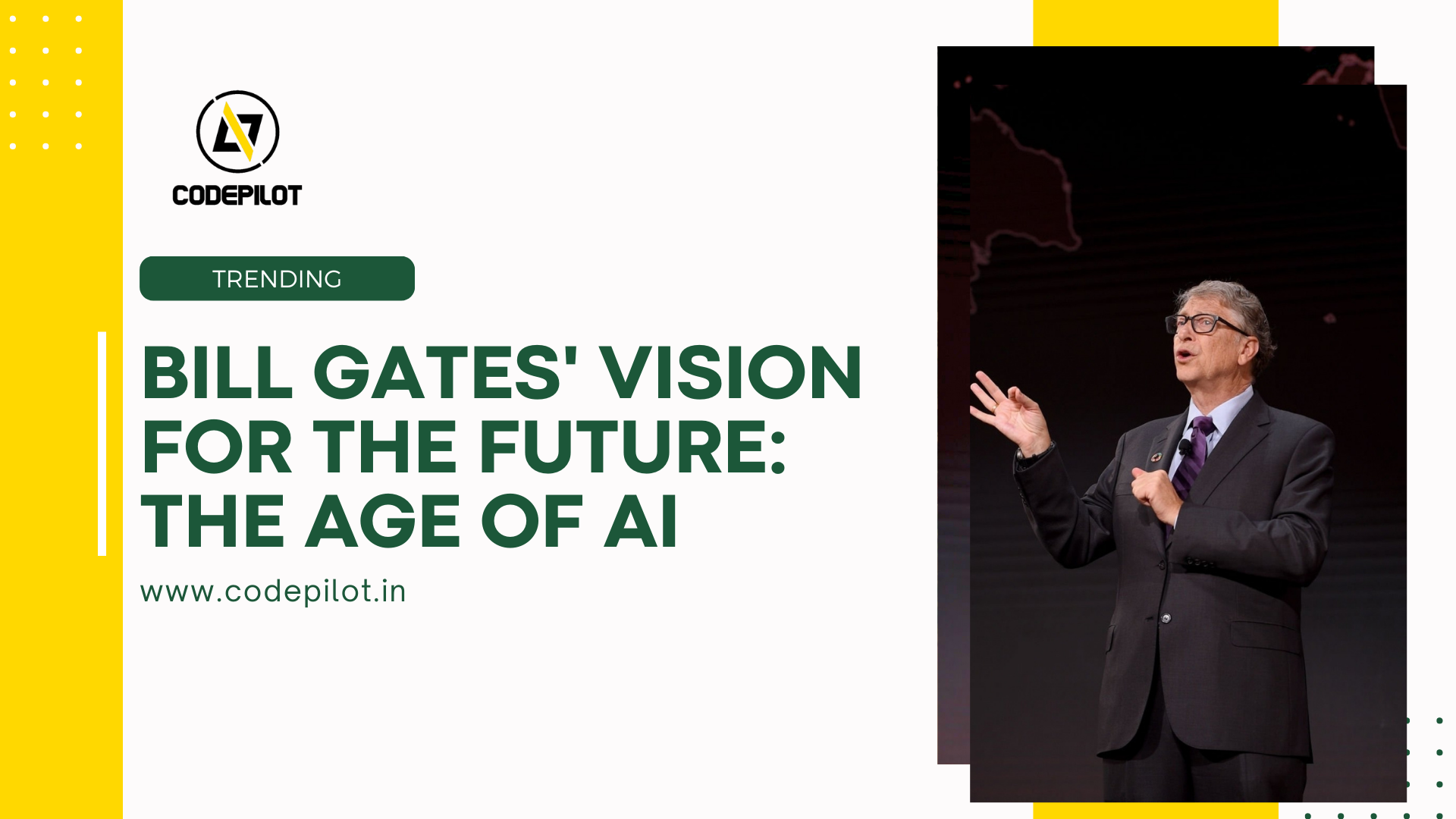
Categories: Trending /
Rimpa Mondal
Bill Gates' Vision for the Future: The Age of AI and Its Potential Impact on Society
Bill Gates describes two revolutionary technological demonstrations he has witnessed in his lifetime: the first being the graphical user interface in 1980 and the second being OpenAI's GPT model passing an Advanced Placement biology exam in 2022. Gates sees AI as the next fundamental development after the creation of the microprocessor, personal computer, Internet, and mobile phone. He believes that AI has the potential to change the way people work, learn, travel, get healthcare, and communicate with each other. Gates also sees philanthropic potential in AI, specifically in reducing global health inequities and saving the lives of children in poor countries.
Reduce some of the world's worst inequities
Bill Gates believes that AI has the potential to improve education and tackle climate change. He thinks AI can help turn around the decline in math achievement in the US, especially for marginalized students, and that it can be used to mitigate the injustice of climate change. Gates emphasizes the importance of ensuring that everyone benefits from AI, and that governments and philanthropy will need to play a role in reducing inequity. While acknowledging the risks and challenges of AI, he plans to continue exploring its potential to empower people at work, save lives, and improve education.
Explaining Artificial Intelligence
The term artificial intelligence (AI) refers to a model created to solve a specific problem or provide a particular service, while artificial general intelligence (AGI) refers to software that can learn any task or subject. AGI does not exist yet, and there is a debate in the computing industry about whether it can be created. With the arrival of machine learning and large amounts of computing power, sophisticated AIs are now a reality and will improve rapidly. The innovations in the AI industry are expected to come much faster than those seen after the microprocessor breakthrough in the early days of the personal computing revolution.
AI will enhance people's work
The capabilities of GPT are not used much in many jobs, such as sales, service, and document handling, that require decision-making but not continuous learning. AI can be trained using existing data sets to empower people to do this work more efficiently. As computing power gets cheaper, AI will enhance people's work, such as helping with writing emails and managing their inbox. Advances in AI will enable the creation of a personal digital assistant that will both improve people's work on the tasks they want to do and free them from the ones they don't want to do.
Development in AI
Advancements in AI will enable the creation of a personal agent, which will assist users in scheduling, communication, and e-commerce across all their devices using natural language. Company-wide agents will also empower employees to be more productive by providing them with access to information about the company and its industry. The rise of AI will lead to increased productivity, but there are concerns about retraining and supporting workers. However, the demand for people who help others will never go away, and AI can be used to reduce inequities in global health and education.
Potential to Improve Healthcare
AI has the potential to improve healthcare by taking care of administrative tasks for healthcare workers, helping them be more productive, and providing patients with basic triage and advice. AI can also accelerate medical breakthroughs by analyzing large amounts of biological data and designing drugs more efficiently. However, there is a need for careful testing and regulation of health AIs to ensure their safety and effectiveness. Additionally, AI can help address global health challenges by developing better seeds, advising farmers, and creating drugs and vaccines for livestock.
Education system and AI’s Influence
The impact of computers on education has been limited, but AI-driven software has the potential to revolutionize teaching and learning in the next five to 10 years. AI can tailor content to a student's interests and learning style, provide immediate feedback, and assist teachers and administrators with assessments and career planning. However, AIs will need to be trained on diverse data sets and ensure availability for low-income schools. The digital divide must also be addressed to prevent students in low-income households from being left behind. Great relationships between students and teachers will still be crucial for learning, and educators are discussing ways to adapt to the new technology.
Risks with AI
Gates explains limitations of current AI models, such as difficulty understanding context and abstract reasoning, and the potential for humans to misuse AI technology. Additionally, there is concern about the possibility of AIs running out of control and posing a threat to humanity's interests. While breakthroughs in AI technology have been made, they have not brought us significantly closer to the development of "strong" AI that can establish its own goals.
What’s Next ?
The development of AI technology will lead to an increase in companies working on new uses for AI, as well as improvements to the technology itself, such as developing new chips and algorithms that drive an AI's learning. The competition between specialized AIs for different uses and the possibility of developing an artificial general intelligence that can learn any task will dominate public discussion. The conversation around AI should balance fears about its downsides with its ability to improve people's lives, and ensure that AIs are used to reduce inequity. We are only at the beginning of what AI can accomplish, and it is important to establish rules to ensure that any downsides of artificial intelligence are outweighed by its benefits.


